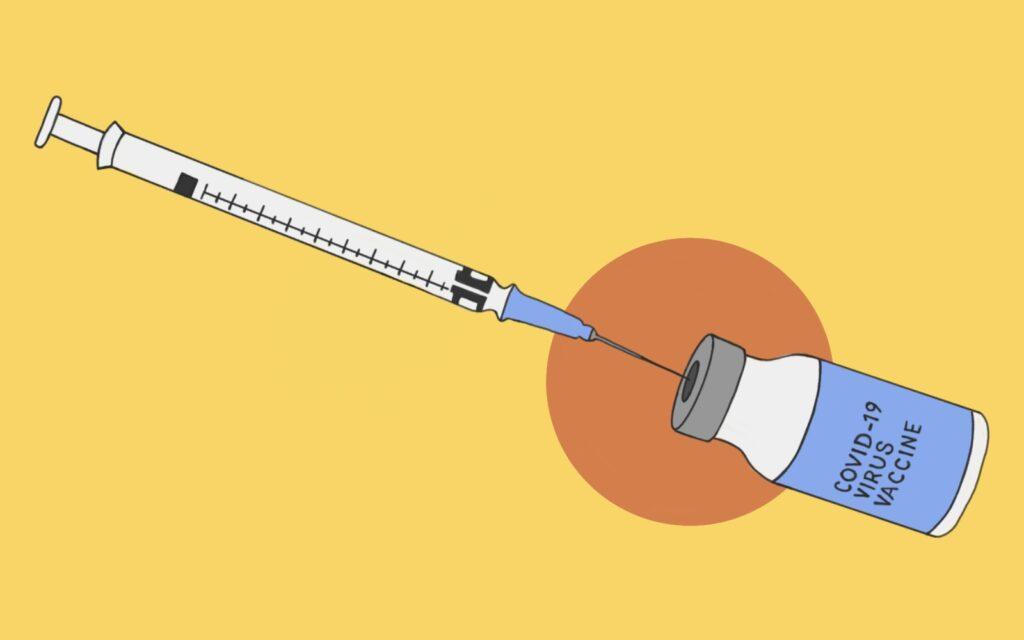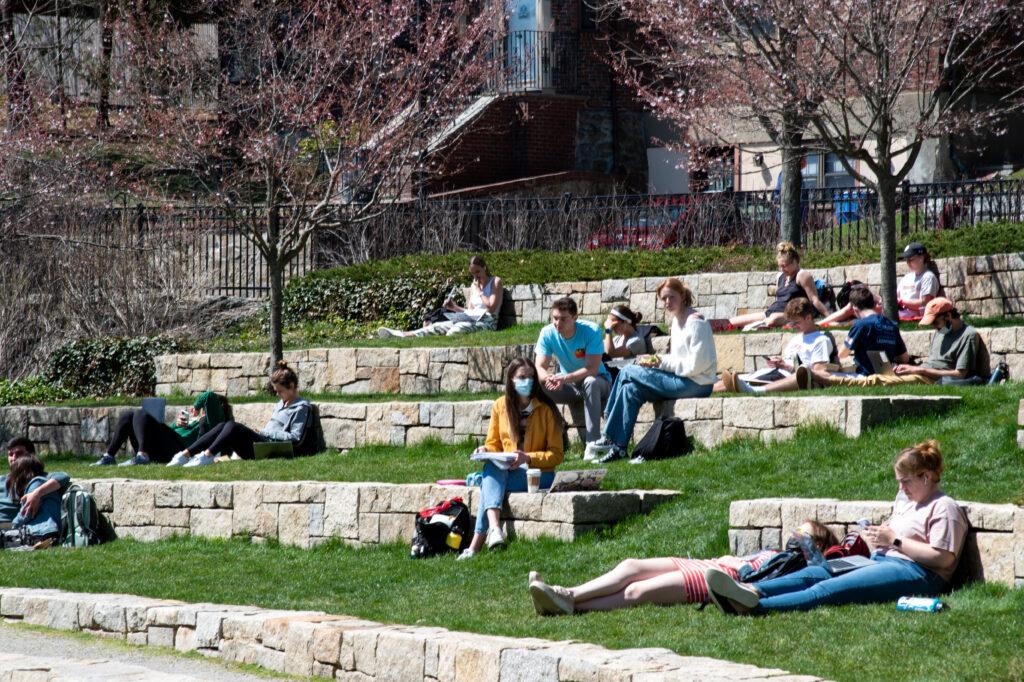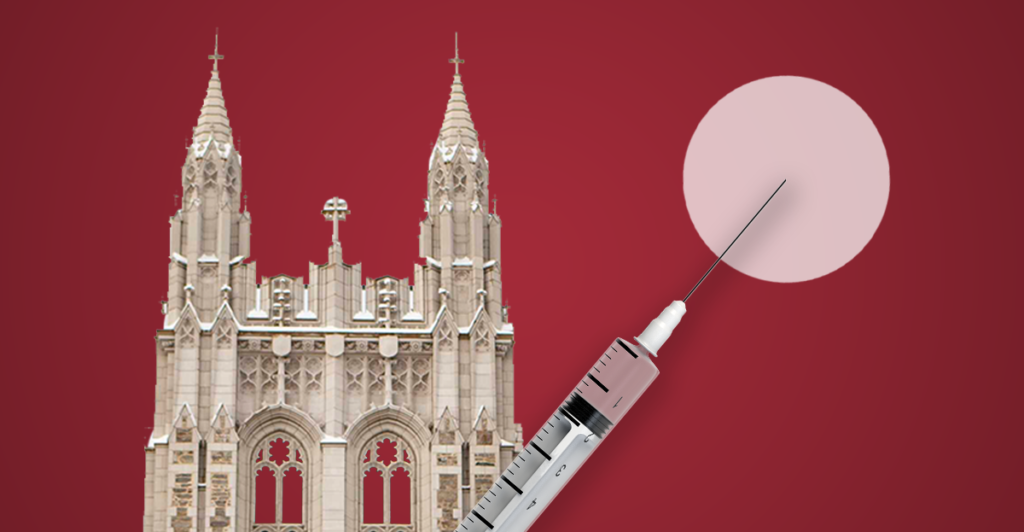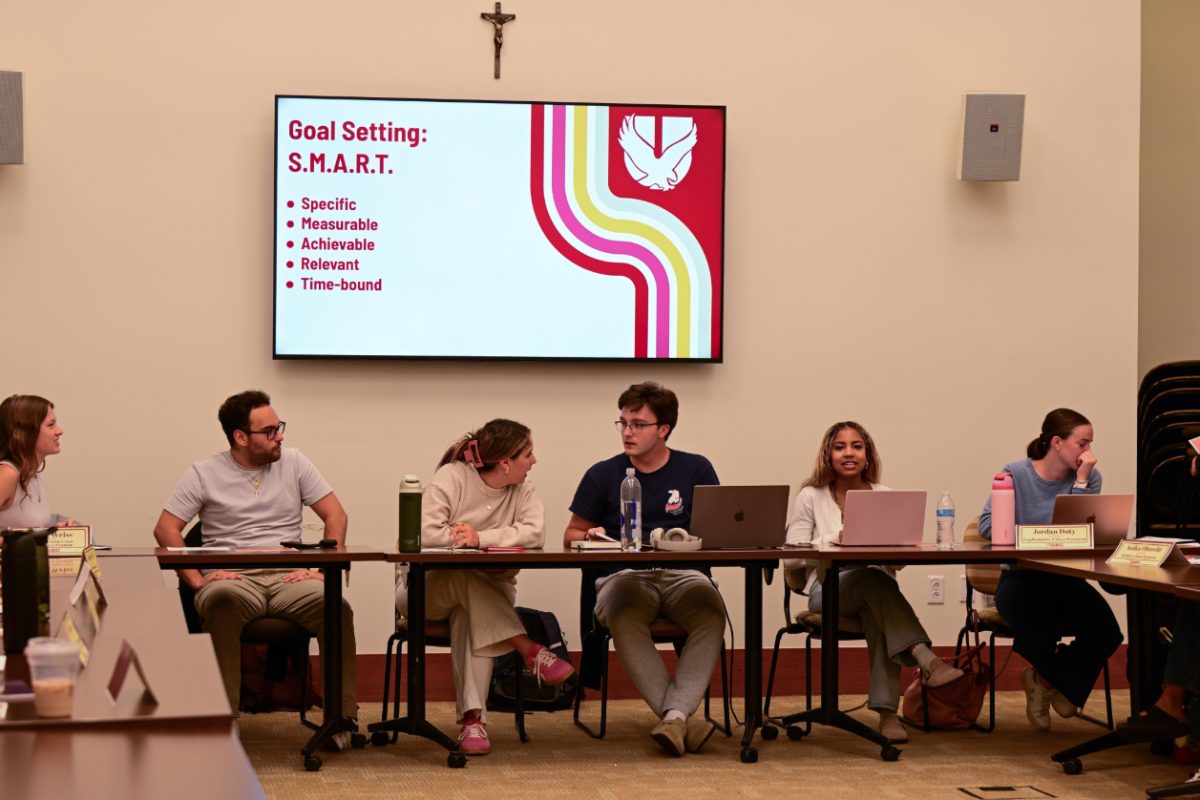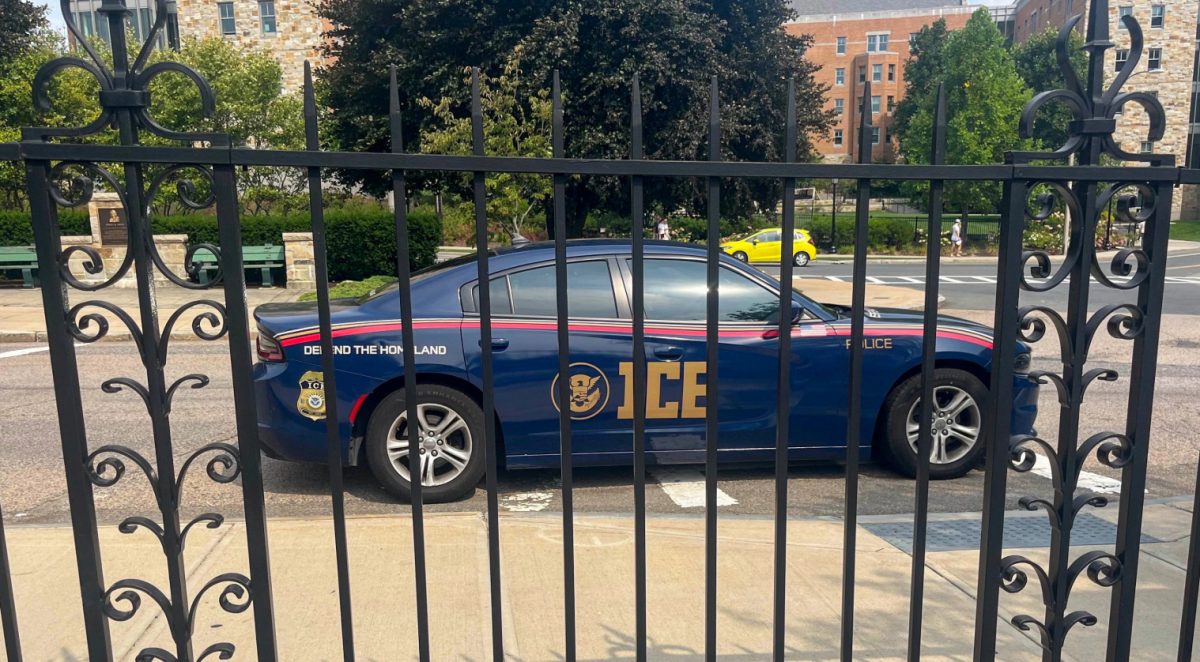From Aug. 16, when Boston College began testing undergraduate students upon their return to campus last fall, to when it closed its doors for Winter Break on Dec. 21, the University recorded 429 undergraduate cases of COVID-19 among the 8600 undergraduate students on campus.
Certain weeks saw larger outbreaks and others saw far fewer cases, but according to Dr. Welkin Johnson, head of the Johnson Lab at BC and a professor in the biology department, one constant throughout the semester was students’ pivotal role in keeping the cumulative undergraduate cases under 500—a number which Johnson says is “not unexpected.”
“It would have been very naive of any campus to think that they were not going to have clusters and parties and people that broke the rules,” Johnson said. “I haven’t heard anybody else say this but probably the most important part of what I’m going to call a success [are] the … students that haven’t done anything wrong.”
With the turning of a new year, one already defined by both hopes provided by a vaccine and renewed fears due to new virus strains around the world, many are looking to the future with questions about what a spring semester on BC’s campus will hold.
COVID-19 and Flu Virus Cases
Since students returned to campus for the spring semester on Jan. 19, BC recorded 89 undergraduate cases out of 19,439 undergraduate tests, as of the Tuesday update to BC’s COVID-19 dashboard.
According to the Centers for Disease Control and Prevention’s COVID Data Tracker, weekly cases in the U.S. peaked in late January and have since declined. The CDC tracker also projects that cases will continue to fall in the coming month.
Last March, the initial rapid spread of COVID-19 cases resulted in BC students being sent home just days after returning to campus after Spring Break. If there were to be another upsurge in cases this spring, a decision about whether to allow students to remain on campus will likely depend on guidance from Massachusetts, Landrigan said.
“If things get really out of control I suppose it’s conceivable that Governor Baker will say, ‘We’re sorry but all the schools are going to have to go remote,’” he said. “But currently the plan is to go forward … and obviously if the states come in [the University] will have to do what the state says.”
Although COVID-19 cases have been climbing, cases of the flu have been at a record low. Lower reported flu cases can be attributed to the preventative measures that people are taking to avoid COVID-19, wrote Rebecca Franckle, a professor in the biology department, in an email to The Heights.
The possibility of contracting both COVID-19 and the flu, however, proves to be a serious danger, she said.
“The concern of course is that simultaneous infection with covid-19 and influenza could cause very severe illness, in addition to the impact on an already overburdened health system,” Franckle said.
The Massachusetts Department of Public Health announced last August that a flu vaccine for all students older than six months would be mandatory by 2021. BC students had to upload proof of vaccination to the University Health Portal, according to an email sent to students from Director of University Health Services Douglas Comeau. What’s New With Testing This Spring?
Students will again file into the Margot Connell Recreation Center to receive their COVID-19 tests, but this semester, the on-campus lab will allow BC to process tests at a higher volume, according to Johnson.
In October, the on-campus testing lab was only able to process around 500 tests per day, according to Johnson. Now, the lab is able to process about 1,500 tests daily. The on-campus lab’s increased capability to process tests is a major change for COVID-19 testing at BC this semester, Johnson said, especially when it comes to contact tracing.
“The advantage of the Boston College lab and what we’ve done differently from other universities is … the on-campus lab is focused on rapid turnaround,” Johnson said. “Even though [other] universities do more frequent testing, it can still be 24 or 48 hours before somebody knows the result and before contact tracing kicks in.”
Boston University tests students living on campus twice a week and Northeastern University tests students every three days. Tufts University tests its undergraduate students every other day.
With increased capacity for processing tests, BC may test individuals more frequently, Johnson said.
“I suspect that we’ll do more frequent testing,” he said. “The nice thing about having the campus lab is that the University was able to adapt [based on] what we learned from last semester.”
BC and other universities recognized the tendency for positive cases to increase after three-day weekends, Johnson said, which will likely lead to more frequent testing after these weekends during the spring semester.
“The universities, we all talk to each other,” Johnson said. “And so the experience across the board is it’s sort of predictable if there’s a three-day weekend, you should expect a cluster of cases within a week of that three day weekend.”
“The other thing that’s very likely to be different is that the on-campus lab [is] going to start monitoring the data for any signs of the UK variant,” Johnson said. “The raw data that we get from testing can sort of act as a canary in a coal mine or a first sign if there’s a new variant on campus.”
A new variant, which is believed to be more transmissible than the common strain of COVID-19, was first detected in September in the UK, and by Jan. 27 it had made its way to 26 states in the U.S., according to the new director of the Centers for Disease Control and Prevention Brenda Fitzgerald.
Franckle also said in an email to The Heights that the new strain, which is now understood as being more contagious than others, will be a larger factor of the pandemic this spring.
“Moving forward, it is likely that new infectious variants will become more common in the U.S., and will also play a role in increased cases,” she wrote.
If the new variant makes its way to BC’s campus, BC may have to reevaluate its approach to testing, according to Johnson.
“[The new strain] would probably trigger a discussion about an increase in testing because if you’re dealing with a more transmissible strain then you’ve got to start worrying about outbreaks spreading faster,” Johnson said. Vaccine Distribution: Inching Toward the New Normal
The Commonwealth of Massachusetts created a vaccine distribution timeline that has designated three phases of vaccine distribution.
Massachusetts is now in Phase 2 of the vaccine distribution plan, according to Franckle. “At this time, many of us in the BC community will not be eligible for the vaccine until Phase 3 (which includes the general public, higher education administrators, faculty and staff, and of course any students who do not otherwise qualify for priority in Phase 1 or 2),” she said.
Massachusetts has projected on their timeline that Phase 3 will start in April, but obstacles such as a decrease in production, change in state guidelines, and lack of availability of vaccine doses would delay it, Franckle said.
Summer Hawkins, an associate professor in the School of Social Work, said that she believes April is an optimistically early date for BC students to be able to get their vaccines.
“I think because the rollout of the vaccine has been slower than planned and most of us in the vaccine community are going to be getting the vaccine later on, … the emphasis is carrying on what has been done in the fall of all the measures,” she said. “I don’t think a critical mass of our community will be vaccinated until later, really towards the end of the semester into the summer.”
Franckle emphasized the importance of BC students getting vaccinated when it becomes available to them.
“Any increase in the number of vaccinated community members will get us closer to a return to normal. I strongly encourage anybody who has the opportunity to be vaccinated to do so – this will keep you safer, and also help to protect our community,” she said.
Even if BC students receive vaccines this spring, they should not expect a drastic lifting of preventative measures and University rules, Landrigan said.
“My guess is that BC will err on the side of caution,” he said. “I think you’re gonna see masks and social distancing and hand washing and random testing throughout the spring semester.”
Landrigan also said that he believes these measures will continue due to their role in the University’s success in suppressing positive cases on campus.
“They’ve got a solid plan here, they’ve got all the personnel and resources in place,” Landrigan said. “I can’t see them abandoning this plan in the middle of the spring semester.”
In an email sent to students prior to the beginning of the semester, BC Residential Life wrote that vaccinated students will still be required to get tested and quarantine upon their arrival to campus. Vaccinated students are also still subject to contact tracing and quarantine procedures, Senior Associate Director of University Communications Ed Hayward said in a statement to The Heights.
Per Massachusetts state guidelines, BC had administered its 100 doses of the COVID-19 vaccine to frontline workers on campus, Hayward said on Wednesday.
Johnson said that, because of the circumstances that the vaccine emerged in, even once vaccinated, individuals should err on the side of caution.
“For the time being, even vaccinated individuals should behave and be treated as if they could potentially get and spread the virus because this vaccine is based on an Emergency Use Authorization as opposed to years of community testing,” he said. “Even though it’s known to be efficacious I think what’s not known yet is does it protect everybody and if you have the vaccine does that mean you’re completely unable to spread the virus?”
Looking forward, Landrigan said that while it is too far in advance to predict with certainty, he believes there is still a possibility that, come fall 2021, the University will still be conducting asymptomatic surveillance testing.
According to Landrigan, herd immunity will not be reached until at least 80 percent of people are vaccinated.
“Until you get up into the 80s, we won’t be able to say that we’ve got this thing completely suppressed,” he said.
Hawkins said that even as the community reaches herd immunity, there will still be pockets of unvaccinated and unprotected groups, similar to how there is with the Measles virus.
“Until we are very confident that others around us are vaccinated and really to a point that we have herd immunity [we can loosen preventative measures], but there are going to be pockets, just as we see with other viruses,” she said.
Update 2/3/2021 4:40 p.m.: This article has been updated to include BC’s distribution of its 100 doses of the COVID-19 vaccine.
Update 2/7/2021 4:25 pm: This article has been updated to include that Massachusetts was in Phase 2 of the vaccine distribution plan at the time of publication.
Featured Graphic by Meegan Minahan / Heights Editor

